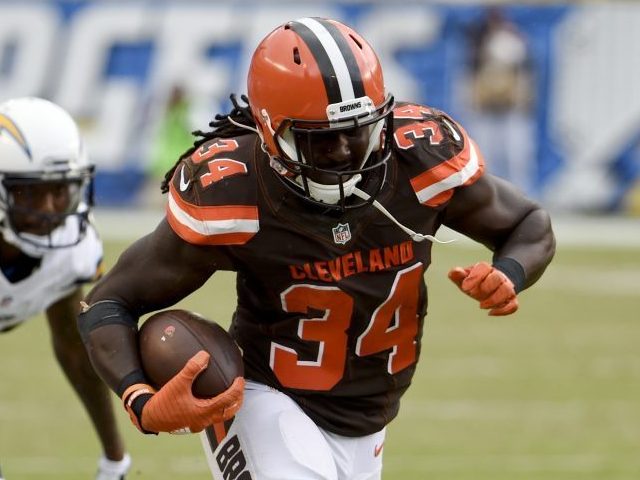Fantasy football competitors have been rocked by a major scandal after news leaked that an employee of one of the websites prematurely leaked player data that could affect millions of dollars in bets, sparking charges of “insider trading.”
The scandal broke this week after an article on the incident in The New York Times revealed that employees of two of the largest fantasy football sites, FanDuel and DraftKings, allegedly used the insider info to make bets themselves. Fans learned that the employees received early data that helped them do better than the customers of the sites and win more money.
On these sites, fans track teams and players on a week-to-week basis instead of a seasonal basis. They assemble data on players and make bets on what teams and players will show the best capabilities on the field that week. Fans use the data to make bets on the games and sometimes win big money if they back the right players and teams.
But according to the Times one of the employees leaking the insider info made a lot of money with the data.
“Last week, a DraftKings employee admitted to inadvertently releasing data before the start of the third week of N.F.L. games, a move akin to insider trading in the stock market,” the paper wrote. “The employee—a midlevel content manager—won $350,000 at rival site FanDuel that same week. The incident has raised questions about who at daily fantasy companies has access to valuable data, how it is protected and whether the industry can—or wants—to police itself.”
This state of affairs was called “insider trading” in the Times story.
“It is absolutely akin to insider trading,” Daniel Wallach, a sports and gambling lawyer at Becker & Poliakoff in Fort Lauderdale, Fla., told the paper. “It gives that person a distinct edge in a contest.”
Currently the industry isn’t regulated because the betting is considered a game of skill, not luck. But in what is still a fledgling industry that has no federal or state regulations governing it, both companies insist that they have adequate internal controls making sure games are honest.
Still, Wallach told the Times that the fantasy sports betting industry is ripe for government intervention.
“The single greatest threat to the daily fantasy sports industry is the misuse of insider information,” Wallach said. “It could imperil this nascent industry unless real, immediate and meaningful safeguards are put in place. If the industry is unwilling to undertake these reforms voluntarily, it will be imposed on them involuntarily as part of a regulatory framework.”
Already one Democrat Congressman is gearing up to start hearings on the industry to determine if regulations need to be imposed.
Floating his idea on the hearings, Representative Frank Pallone Jr. (D, NJ) recently said of the two big websites, “I really think if they had to justify themselves at a hearing they wouldn’t be able to.”
The operators of the websites at the center of the scandal, though, say that they have plenty of internal controls to keep things honest.
Reiterating that, both FanDuel and DraftKings joined together in a joint statement about the incident promising to strengthen those “internal controls” in order to maintain the integrity of the games.
While there has been recent attention on industry employees playing on FanDuel and DraftKings, nothing is more important to DraftKings and FanDuel than the integrity of the games we offer to our customers. Both companies have strong policies in place to ensure that employees do not misuse any information at their disposal and strictly limit access to company data to only those employees who require it to do their jobs. Employees with access to this data are rigorously monitored by internal fraud control teams, and we have no evidence that anyone has misused it.
However, we continue to review our internal controls to ensure they are as strong as they can be. We also plan to work with the entire fantasy sports industry on this specific issue so that fans everywhere can continue to enjoy and trust the games they love.
This year, advertising for the myriad fantasy football sites appear as a ubiquitous presence in commercial breaks during televised sporting events. The NFL regards fantasy football, at least when it offers payouts to winners, as a form of gambling, discouraging players from affiliating with the sites.
Follow Warner Todd Huston on Twitter @warnerthuston or email the author at igcolonel@hotmail.com

COMMENTS
Please let us know if you're having issues with commenting.